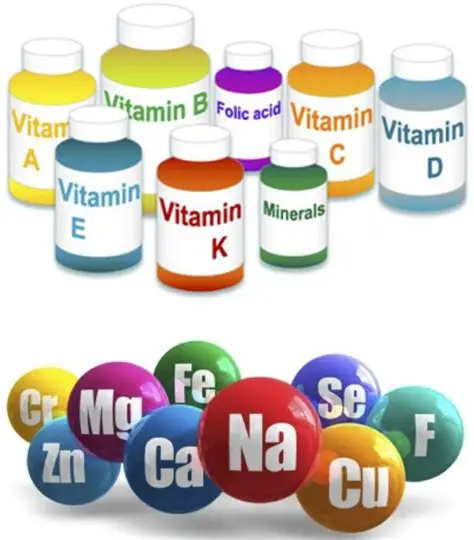Even with a balanced diet, many people still fall short on key vitamins and minerals. Here are the micronutrients you may be missing and why they matter.
Introduction
Most of us pay attention to the big picture when it comes to diet, counting calories, balancing proteins, fats, and carbohydrates, or avoiding processed foods.
But beneath these macronutrients lies another essential layer of nutrition: micronutrients. These are the vitamins and minerals that support every function in your body, from energy production to brain health and immune defense.
Unlike macronutrients, they’re needed only in small amounts, but deficiencies can have a significant impact on your well-being.
Surprisingly, even people who eat relatively healthy diets can fall short on certain micronutrients due to soil depletion, food processing, or lifestyle choices. Let’s explore the daily micronutrients you might be missing and why it’s important to keep them in check.
MUST READ:Are Organic Foods Really Worth It?
Vitamin D: The Sunshine Nutrient
Vitamin D is one of the most commonly missed nutrients because it comes primarily from sunlight rather than food.
With more people working indoors, deficiencies are becoming increasingly common worldwide. Vitamin D helps the body absorb calcium, which is vital for strong bones, but it also plays a key role in immune system function and mood regulation.
Low levels are linked to fatigue, frequent infections, and even depression. While fatty fish, fortified dairy, and egg yolks provide some vitamin D, sunlight exposure or supplementation is often necessary to meet daily needs.
Magnesium: The Energy Mineral
Magnesium supports over 300 biochemical reactions in the body, including nerve transmission, blood pressure regulation, and protein synthesis.
Yet many people don’t get enough, largely because processed foods strip away magnesium-rich components like whole grains and leafy greens.
A deficiency may show up as muscle cramps, fatigue, headaches, or trouble sleeping. Good dietary sources include spinach, almonds, pumpkin seeds, and legumes, but because modern diets often lack these foods, magnesium insufficiency is surprisingly common.
Iron: The Oxygen Carrier
Iron is a critical component of hemoglobin, the protein in red blood cells that carries oxygen throughout the body.
Without enough iron, your cells don’t get adequate oxygen, leading to tiredness, dizziness, and poor concentration.
Women of childbearing age, vegetarians, and endurance athletes are especially at risk of iron deficiency.
While red meat is the richest source, plant-based options like lentils, beans, and spinach also provide iron, though they’re absorbed less efficiently. Pairing plant sources with vitamin C–rich foods like oranges or tomatoes can enhance absorption.
Vitamin B12: The Nerve Protector
Vitamin B12 supports nerve health, DNA synthesis, and red blood cell production. Deficiency can lead to anemia, fatigue, memory issues, and tingling in the hands and feet.
Because B12 is found naturally only in animal products, vegans and vegetarians are particularly vulnerable.
Even meat eaters can develop deficiencies as they age due to decreased stomach acid, which affects absorption. Fortified cereals, dairy products, and supplements are common solutions for those who can’t get enough from food alone.
Calcium: The Bone Builder
Calcium is widely associated with bone strength, but it also regulates heartbeat, muscle contractions, and nerve signaling.
While dairy products are often promoted as the primary source, many people still don’t reach daily requirements, especially those who avoid dairy due to lactose intolerance or dietary choices.
Dark leafy greens, fortified plant-based milks, and tofu are excellent alternatives. Chronic low calcium intake can increase the risk of osteoporosis later in life, making this nutrient vital at all ages.
Potassium: The Balancing Electrolyte
Potassium is essential for maintaining fluid balance, proper muscle contractions, and healthy blood pressure.
Despite its importance, many people consume far less than recommended, in part because processed foods are high in sodium but low in potassium.
Deficiency symptoms may include fatigue, muscle weakness, and irregular heartbeat. Bananas are a well-known source, but sweet potatoes, avocados, beans, and leafy greens are even richer in potassium. Balancing potassium with sodium intake is key to cardiovascular health.
Zinc: The Immunity Booster
Zinc is a trace mineral needed in small amounts but has a big impact on overall health. It strengthens the immune system, aids in wound healing, and supports normal growth and development.
A lack of zinc can result in frequent colds, poor wound healing, and even changes in taste and smell.
Because zinc is found mainly in shellfish, red meat, and poultry, vegetarians and vegans are at higher risk of deficiency. Whole grains, beans, and seeds also provide zinc but in lower amounts.
Final Thoughts
Micronutrients may be required only in small amounts, but their effects on health are enormous. Missing out on them can lead to fatigue, weakened immunity, and long-term health problems. The best way to avoid deficiencies is by eating a varied, nutrient-rich diet full of fruits, vegetables, whole grains, lean proteins, and healthy fats.
In some cases, supplementation may be necessary, especially for vitamin D, B12, or iron, depending on your lifestyle and dietary habits. Remember, it’s not just about eating enough food it’s about eating the right kinds of food to fuel your body on a cellular level.


